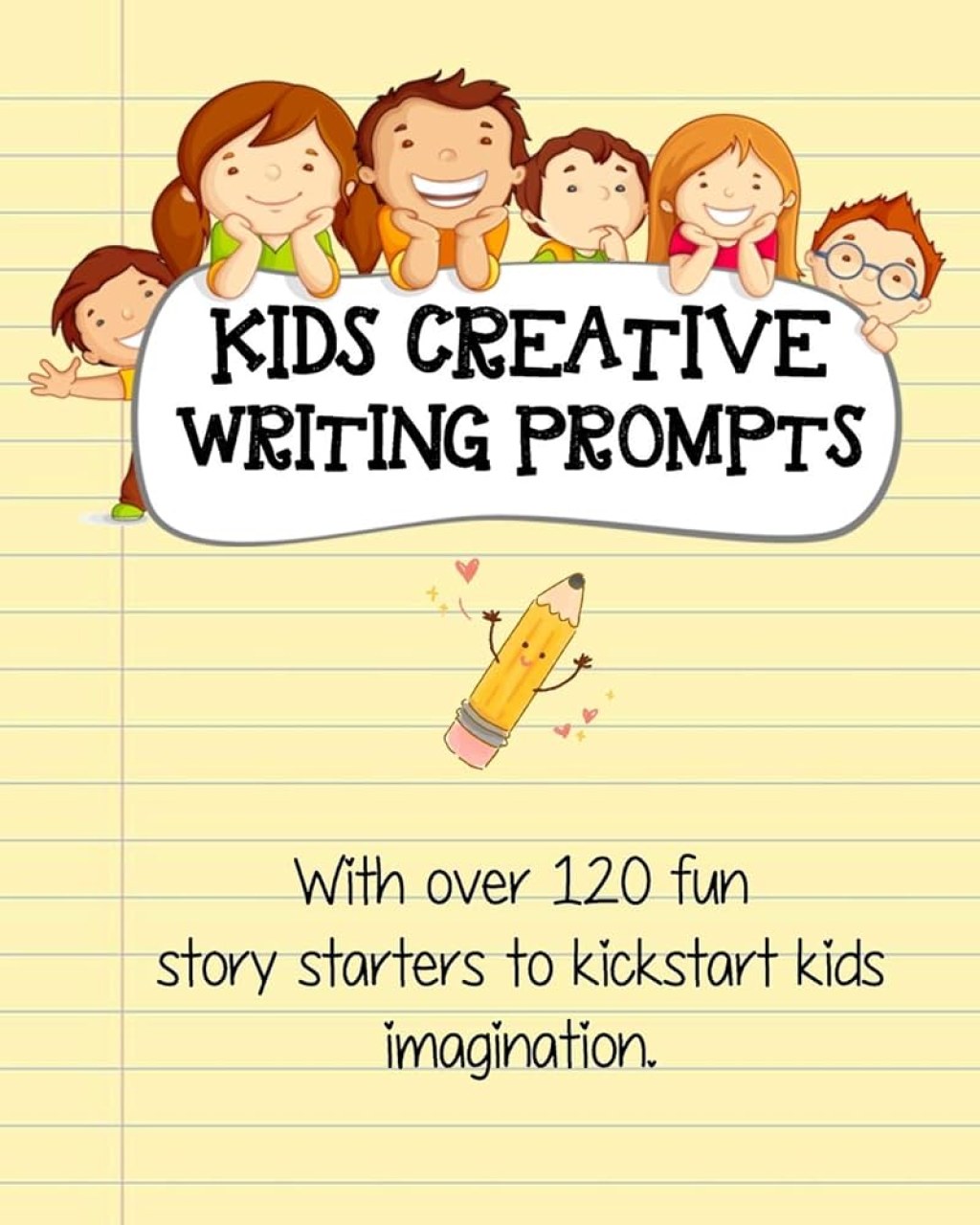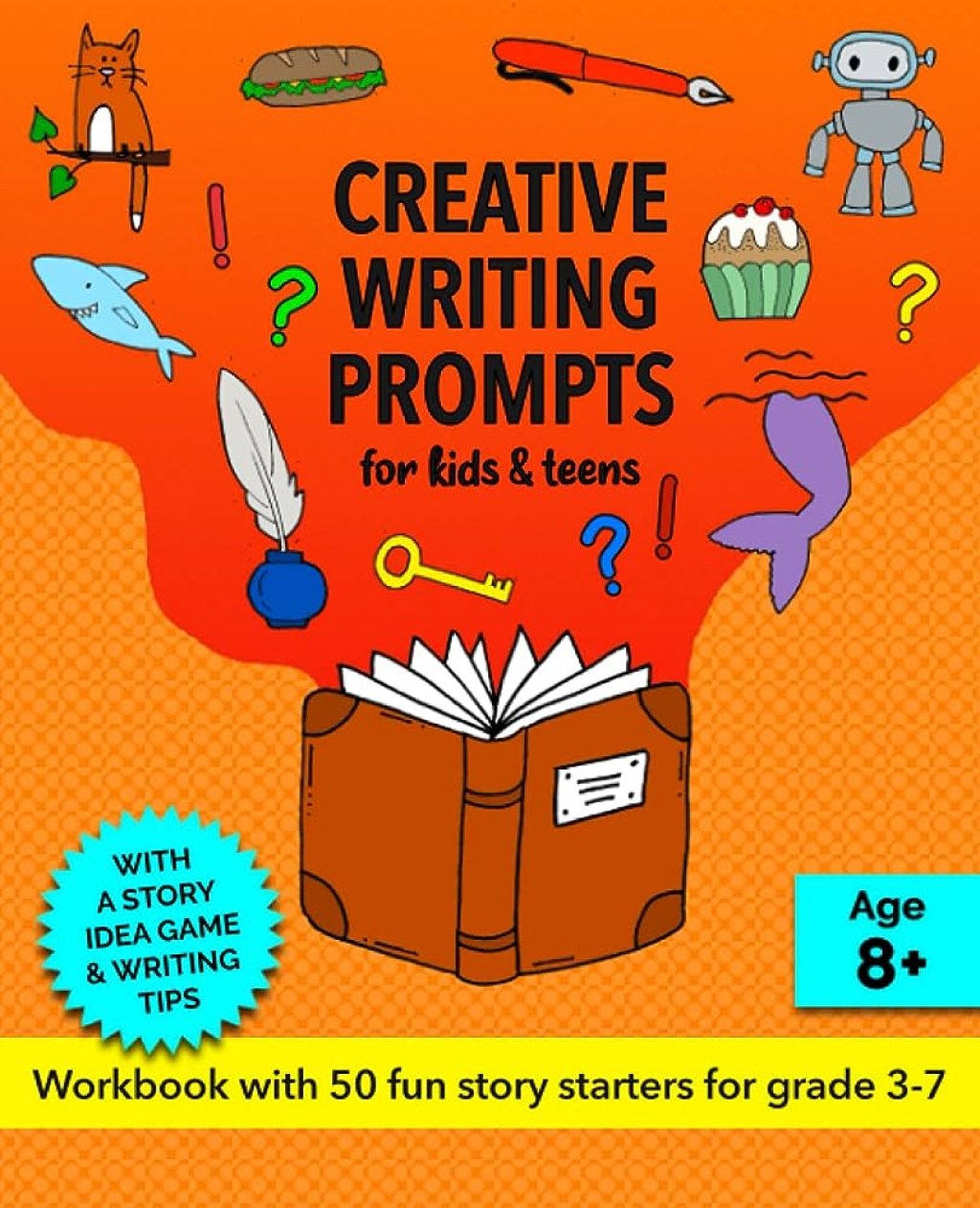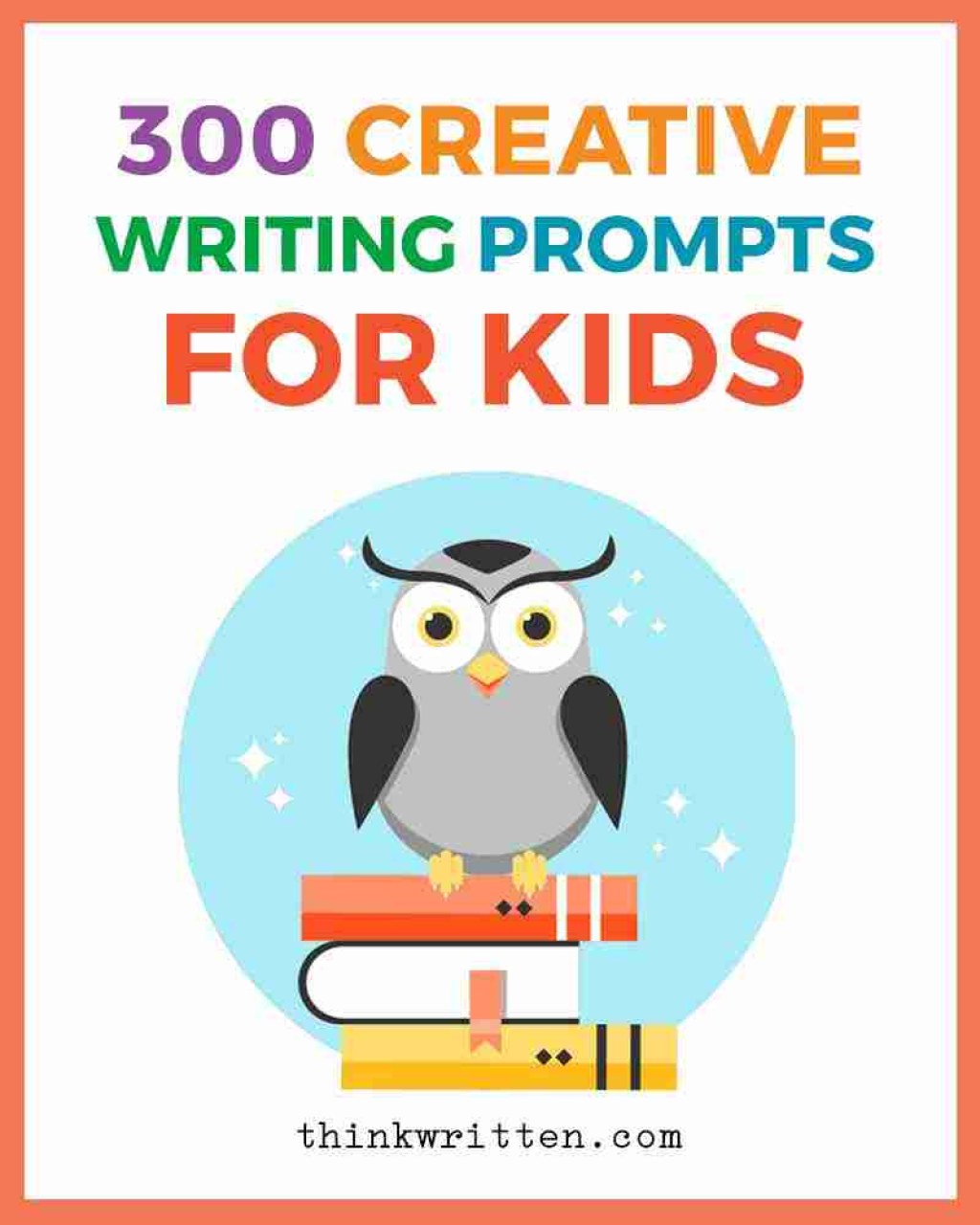Unlocking Imagination: Creative Writing Kids Program – Ignite Your Child’s Creativity Today!
Creative Writing for Kids: Unlocking Imagination and Language Skills
Introduction
Dear Readers,
Welcome to our article on creative writing for kids! In this digital age, where technology dominates our lives, it’s crucial to nurture your child’s creativity and language skills. Creative writing provides an excellent platform for children to express themselves, explore their imagination, and enhance their communication abilities. In this article, we will delve into the world of creative writing for kids, discussing its benefits, techniques, and how you can encourage your child to develop this valuable skill.
3 Picture Gallery: Unlocking Imagination: Creative Writing Kids Program – Ignite Your Child’s Creativity Today!



Now, let’s embark on this exciting journey and discover the wonders of creative writing together!
What is Creative Writing for Kids? 🖌️
Creative writing for kids refers to the process of allowing children to express their thoughts, feelings, and ideas through written words. It encourages them to think critically, use their imagination, and develop their storytelling skills. By engaging in creative writing activities, children can enhance their vocabulary, grammar, and overall language proficiency in a fun and enjoyable way.
📝 Techniques for Creative Writing
1. Free Writing: Encourage your child to let their thoughts flow freely on paper without worrying about grammar or spelling mistakes. This technique stimulates creativity and helps overcome writer’s block.

Image Source: media-amazon.com
2. Prompts and Story Starters: Provide your child with interesting prompts or story starters to spark their imagination and inspire their writing. This could be a picture, a word, or a sentence that acts as a launching point for their story.
3. Journaling: Encourage your child to maintain a journal where they can write about their daily experiences, thoughts, and feelings. Journaling promotes self-reflection and helps develop a consistent writing habit.

Image Source: media-amazon.com
4. Collaborative Writing: Engage your child in collaborative writing activities with their peers or siblings. This fosters teamwork, creativity, and the exchange of ideas, making the writing process more enjoyable.
5. Editing and Revising: Teach your child the importance of editing and revising their writing. By reviewing and improving their work, they develop critical thinking skills and learn to pay attention to details.
6. Publishing and Sharing: Encourage your child to share their writing with others, whether it’s through a blog, a school publication, or simply reading their stories aloud to family and friends. This boosts their confidence and motivates them to continue writing.

Image Source: thinkwritten.com
7. Experimenting with Different Genres: Encourage your child to explore various writing genres, such as poetry, fiction, or non-fiction. This allows them to discover their strengths and interests, further fueling their passion for creative writing.
Who Can Benefit from Creative Writing? 📚
Creative writing is beneficial for children of all ages and abilities. It can help:
1. Young children in developing their language skills and expanding their vocabulary.
2. Shy or introverted children in expressing themselves and building confidence.
3. Children with learning disabilities or special needs in improving their communication abilities.
4. High-achieving children in challenging themselves and exploring their creativity.
5. All children in developing critical thinking, problem-solving, and empathy.
When and Where to Practice Creative Writing? ⏰🌍
Creative writing can be practiced anytime and anywhere, making it a flexible and convenient activity for children. Here are some ideal settings for creative writing:
1. At Home: Create a cozy writing corner in your child’s room or allocate a specific time each day for writing activities.
2. In Nature: Encourage your child to write while surrounded by nature, whether it’s in the backyard, a park, or during a family outing.
3. During School: Many schools incorporate creative writing into their curriculum. Encourage your child to participate actively in writing assignments and projects.
4. Writing Workshops: Enroll your child in writing workshops or summer camps that focus on developing their creative writing skills.
5. Online Platforms: Explore online platforms that offer creative writing resources, prompts, and communities where your child can share their work and receive feedback.
Why Is Creative Writing Important for Kids? 🌟
Creative writing is essential for children as it:
1. Enhances Language Skills: Through creative writing, children strengthen their vocabulary, grammar, and spelling abilities.
2. Boosts Imagination: Creative writing allows children to unleash their imagination and think outside the box.
3. Develops Communication Skills: Writing stories and expressing ideas help children become better communicators, both verbally and in writing.
4. Encourages Self-Expression: Creative writing provides a safe space for children to express their thoughts, feelings, and experiences.
5. Fosters Critical Thinking: By constructing stories and characters, children develop critical thinking skills and learn to analyze situations from different perspectives.
6. Cultivates Empathy: Through creative writing, children understand and empathize with different characters, promoting empathy and understanding.
7. Builds Confidence: Successfully completing writing projects and receiving feedback from others boosts a child’s self-confidence and self-esteem.
How to Encourage Creative Writing in Kids? 🌈
Here are some tips to motivate and inspire your child to engage in creative writing:
1. Provide a Creative Environment: Create a space that encourages writing, with materials like colorful pens, notebooks, and inspiring books.
2. Be a Writing Role Model: Let your child see you writing and expressing yourself through words.
3. Offer Choices: Allow your child to choose their writing topics and genres, giving them a sense of ownership and autonomy.
4. Celebrate Achievements: Celebrate your child’s writing accomplishments by displaying their work or organizing mini author readings at home.
5. Emphasize the Fun Aspect: Make writing enjoyable by organizing writing games, challenges, or collaborations with friends.
6. Encourage Reading: Reading helps children develop their writing skills by exposing them to different writing styles and genres.
7. Provide Constructive Feedback: Offer feedback that focuses on your child’s strengths and areas for improvement while being supportive and encouraging.
Advantages and Disadvantages of Creative Writing for Kids
Advantages:
1. Enhances language skills and expands vocabulary.
2. Fosters creativity and imagination.
3. Develops critical thinking and problem-solving abilities.
4. Promotes self-expression and emotional well-being.
5. Builds confidence and self-esteem.
Disadvantages:
1. Can be time-consuming, especially for children who struggle with writing.
2. May lead to frustration if children face difficulties in expressing themselves.
3. Requires consistent practice and encouragement from parents and educators.
4. May distract children from other academic or extracurricular activities if not managed effectively.
Frequently Asked Questions (FAQ)
Q: How can I help my child overcome writer’s block?
A: Encourage your child to take a break, engage in activities they enjoy, and return to writing with a refreshed mind. Providing interesting prompts or story starters can also help kick-start their creativity.
Q: Are there any online resources for creative writing activities?
A: Yes, many websites offer creative writing prompts, exercises, and communities where children can share their work and receive feedback. Some popular platforms include Young Writers Project, Storybird, and Scholastic’s Kids’ Club.
Q: What if my child doesn’t enjoy writing?
A: Try to make writing fun and engaging by incorporating it into play or offering choices in topics and genres. Experiment with different writing activities and approaches to find what resonates with your child.
Q: Can creative writing help my child improve their academic performance?
A: Yes, creative writing enhances language skills, critical thinking, and problem-solving abilities, which can positively impact a child’s overall academic performance.
Q: How can I provide constructive feedback without discouraging my child?
A: Focus on highlighting your child’s strengths and offer specific suggestions for improvement. Encourage them to revise and edit their work, emphasizing that writing is a continuous learning process.
Conclusion: Unlock Your Child’s Creative Potential
Dear Readers,
Throughout this article, we have explored the exciting world of creative writing for kids. By engaging in creative writing activities, children can unlock their imagination, enhance their language skills, and develop important life skills such as critical thinking and empathy. Remember to provide a supportive environment, celebrate their achievements, and encourage them to express themselves freely through words.
Now it’s time to embark on this creative journey with your child. Watch as their stories come to life and their confidence soars. Together, let’s nurture their love for writing and empower them to become lifelong storytellers.
Final Remarks: Discover the Power of Words 📝
Dear Readers,
As we conclude this article on creative writing for kids, let us reflect on the power of words. Through writing, children have the ability to create entire worlds, share their thoughts and dreams, and connect with others on a profound level. The journey of creative writing is not just about mastering grammar and spelling; it is about self-discovery, empathy, and personal growth.
So, let your child’s imagination take flight, and encourage them to embrace the wonders of creative writing. Together, let’s celebrate the beauty of language and empower our children to create a brighter and more expressive future.
This post topic: Creative Writing